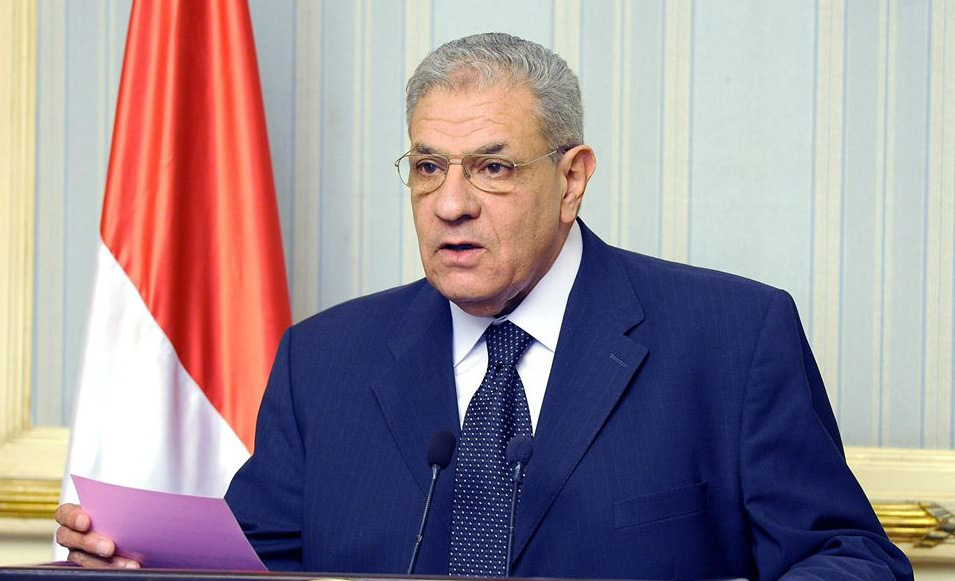
(Photo courtesy of Egypt’s Cabinet)
State media reported Monday that Prime Minister Ibrahim Mehleb will soon invite political parties to a meeting with the committee under his supervision to discuss amendments of the parliamentary law.
The committee in charge of amending the parliamentary law is to decide in a meeting Thursday whether or not there will be a social dialogue with political entities regarding the amendments.
Egypt’s parliamentary elections are the third and final step of the roadmap established after the ouster of former president Mohamed Morsi on 3 July 2013. The two previously completed steps were writing the constitution and electing a president.
The parliament was supposed to be elected before the president, but former interim president Adly Mansour amended this in January 2014. Since then, elections have been pending on the issuing of laws organising parliamentary life.
Two parliamentary laws were issued, one including the requirements and mechanism of the elections, and the other concerning the division of electoral districts. The latter turned out to be unconstitutional, as decided by the Supreme Constitutional Court (SCC) at the beginning of March 2015. The decision came less than a month ahead of the announced elections schedule.
The cabinet selected the same committee that drafted the initial law to amend it. The committee includes the prime minister’s advisor on security and elections; the Minister of Justice’s assistant for legislation; the Minister of Interior’s assistant for legal affairs; and two law professors from Ain Shams and Mansoura universities.
A series of appeals have been filed in court demanding the annulment or amendment of certain requirements for the candidates. This includes allowing dual citizenship holders to run for the elections, which has now been approved.
Moreover, the law differentiated between genders in favour of women when it comes to the suspension of a parliamentary senators’ membership. The law bans any changes in political affiliations after the elections, which means that parliamentary members have to keep the position they held when elected, whether as independents or party members.
According to Minister of Transitional Justice and Parliamentary Affairs Ibrahim Al-Heneidi, an amendment has been made to apply same conditions for men and women.
According to Al-Wafd Party spokesperson Bahgat El-Hossamy, political forces want the parliamentary division to be as following: 40% closed-lists; 40% for proportional representation lists; and 20% for individuals.
Nonetheless, Al-Heneidi stated the committee also rejected the idea on the grounds that it is unconstitutional to combine two different types of list in one election, according to state-owned Al-Ahram on Saturday.
Others amendments that will not be passed include the exemption from military service and lowering the minimum age requirement from 25 to 18 for potential candidates, Al-Ahram added.
Meanwhile, the major defect lies in the law defining electoral districts, which allocated a number of parliamentary seats for each governorate. The SCC ruled that the division did not match fair representation, especially since over 50 million Egyptians are eligible to vote. Before the verdict, there were a total of 567 parliamentary seats. Therefore, adjusting electoral constituencies will result in the increasing of the seats by 20 or 30 more, according to Al-Heneidi.



